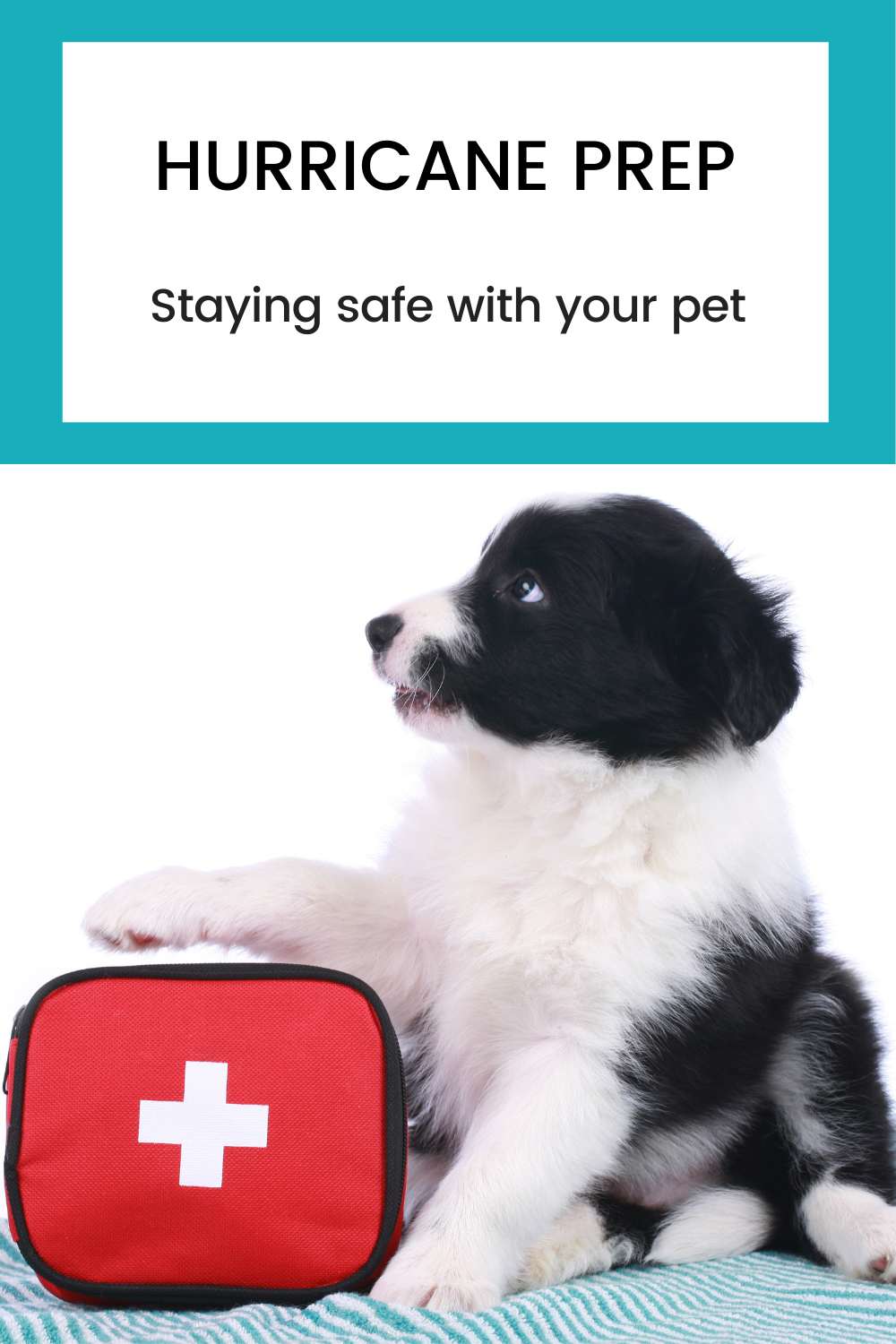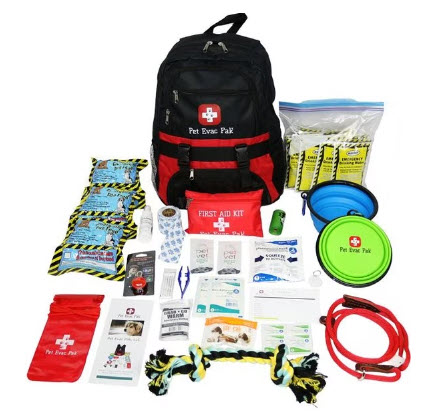As Atlantic hurricane season approaches, it's critical for pet parents to proactively ensure the safety of their beloved pets. Natural disasters like hurricanes can create chaotic and unpredictable situations, increasing the risk of a furry family member getting lost or separated from their families and possibly winding up in an animal shelter.
The Impact of Hurricanes on Pets
For those native to coastal areas like Florida that are impacted by hurricanes each year, local animal shelters gear up for an influx of displaced animals in the wake of hurricanes and the issues that come from them. These facilities provide emergency shelter and medical care for hundreds of companion animals until they can be reunited with their families post-storm.

By following these straightforward steps, pet owners can boost the odds of either not losing their pets or reuniting with quickly them after a disaster.
This article will discuss key disaster planning strategies that are pivotal for hurricane pet safety and hurricane pet preparedness. These steps will help pet owners protect their pets during hurricanes, offering peace of mind during an otherwise stressful time.
Keep your pet's information current on PetHub.com
If you're using PetHub.com's QR coded digital ID tags for your pet, it's crucial to keep your contact information updated. These tags serve as a lifeline for your lost pet during a hurricane, providing a quick and convenient way for rescue workers to access your pet's profile and contact details.
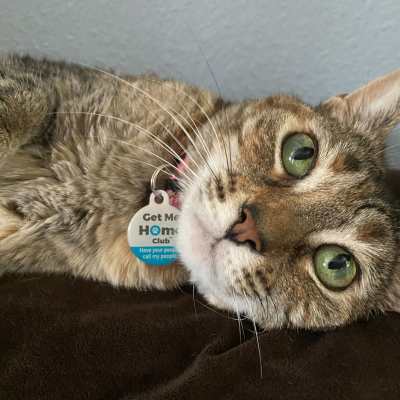
The Importance of Keeping Pet Information Current
Regularly reviewing and updating your pet's profile on PetHub.com significantly boosts the chances of a safe reunion post-hurricane. A handy tip is to attach an activated tag to all of your pet's collars and harnesses. This allows you to quickly switch out their gear in an emergency without needing to transfer a PetHub tag.
Placing key owner information on each pet's carriers and/or crates is also important, in the event a person is staying in emergency shelters and they are separated from their pet. PetHub Ready Kits, which include QR-powered crate cards are specifically designed to help in emergencies like this
Microchips: A Key Step in Pet Hurricane Safety
Microchipping serves as a permanent identification method that significantly aids in reuniting lost pets with their owners, especially during natural disasters.
Ensuring Accurate Microchip Information
It's crucial to confirm that your pet's microchip information is accurate and up-to-date before disaster strikes. Reach out to the microchip company to verify they have your latest contact details, such as your phone number and address. Remember, a microchip's effectiveness hinges on the accuracy of the associated information.
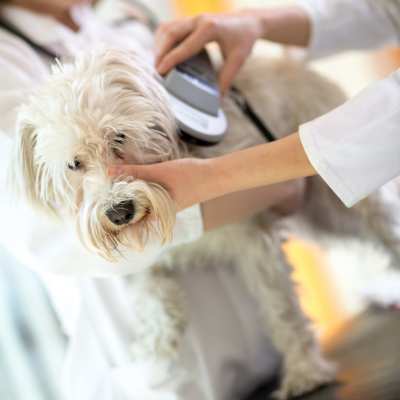
Considering Microchipping for Pet Safety
If your furry family member isn't microchipped yet, look up chip drives at your local animal shelter. They typically offer this service at an affordable cost. I was able to get my German Shepherd, Gojira, microchipped for under $20 after relocating to a more rural area in Florida where the risk of him getting lost during a natural disaster is higher.
Pet Licensing: A Legal and Safety Necessity
In many jurisdictions, pet licensing is not just a legal obligation but also a crucial step toward ensuring pet hurricane safety.
The Role of Licensing in Pet Safety
Licensing offers an extra layer of identification, enhancing the chances of a successful reunion in case of separation during a hurricane. License tags typically feature your contact information, enabling animal control agencies or helpful citizens to swiftly identify and return your pet.
Ensure you're adhering to any pet licensing requirements in your area as part of your comprehensive hurricane preparedness plan. This simple step can help your family avoid a pet disaster.
Essential Steps to Prepare Your Pet's Disaster Preparedness Kit
As we gear up for storm season or any natural disaster, it's essential to plan ahead. Think about not just your emergency supplies, but also those of your pet. Creating a tailor-made emergency kit for your furry friend is a key step in ensuring their safety during a natural disaster.
Essential Items for Your Pet's Emergency Kit
When putting together your emergency kit for your pet, here are some must-haves to consider:
-
Medication Details: Include a list of your pet's medications, along with the dosages. If possible, have commonly needed pet medications packed away in a waterproof container.
-
Medical Records: Keep your pet's medical records handy, including medical conditions and proof of vaccinations. NOTE: Medical records stored on your pet's PetHub profile provide easy to access.
-
Photos: Should you need to create a lost pet poster, current photos of your pet are invaluable.
-
Emergency Contacts: Compile a list that includes your vet, local animal shelters and rescue organizations, and your local emergency management agency.
-
Pet First-Aid Kit: You can make a first-aid kit or purchase a pre-made one for your pet with non-emergency medical attention items like bandages, gauze, antiseptic wipes, and tweezers.
-
Food and Water Supplies: Have enough food and water for at least three days.
-
Identification: Make sure all pets are wearing collars or harnesses with ID tags.
-
Carrier: Have a crate or carrier large enough for your pets to comfortably stand up and turn around.
-
Leash: Include a few sturdy leashes or leads so they are easily accessible at all times.
-
Comfort Items: Add a blanket or towel for your pets to sleep on.
-
Poop Bags: An easy and important item to clean up after your pooch, particularly if staying in evacuation centers. If you don't have any on hand, small garbage bags will also work.
-
Litter Box: This is a must-have for cats. You can save space by purchasing a collapsible one.
-
Lists: The contact information for boarding facilities, a pet friendly evacuation center, pet friendly hotel, the local humane society, Red Cross shelters, and the nearest veterinary hospital.
If you don't have time to build your own emergency kit, Chewy has a large supply of emergency grab-n-go bags you can have delivered to your door in just a few days.
The Importance of a Pet Emergency Kit
As a Florida pet owner myself, I have personal experience with last-minute evacuations and prolonged power outages. I've ensured that my pets, Goji and Aela, each have emergency kits stocked with supplies for a week. Whether you're staying put while the city recovers post-hurricane or need to quickly gather essentials to transport your pets to a safer location, a well-prepared kit is key in keeping pets safe.
Setting Up a Pet Safe Storm Sanctuary
Identify a secure and safe spot in your home where you can keep your pets indoors during a storm. This area should be away from windows, well-protected, and ideally located on a lower floor. Provide comfortable bedding and familiar items to help your pets stay calm during the storm.

Creating a Permanent Safe Haven for Pets
I am experienced with waiting out storms with pets inside. Aela, has her permanent "cat haven" in the master closet, equipped with extra food and water bowls, a suspended bed (for peace from Goji), and a scratching post. There's ample space to accommodate Goji’s items, and their emergency kits are conveniently stored on a shelf, ready for immediate use.
Preparing for Evacuation: Pet-Friendly Shelters and Accommodations
In case of an evacuation, pre-arrange a shelter or locate accommodations that accept animals. Your local animal control or shelters are excellent resources for disaster preparedness advice – check their websites for recommendations! This proactive approach is a crucial component of your hurricane preparedness plan.
The Importance of Keeping Pets Close During a Hurricane
During a hurricane, it's essential to include your pets in your emergency plan, keeping them with you. If you have to evacuate your immediate area, do not leave them behind! Pets can become frightened or disoriented during the chaos of a storm, and leaving them alone increases the risk of them becoming lost.
Researching and Preparing for Animal-Friendly Evacuation Options
Many evacuation shelters now accept pets but do require advance notice. Research animal-friendly options in your area and include them as part of your evacuation plan. Again, a good starting point is to see what your local animal control or shelters recommend for your area.
Transport Pets Safely
Evacuations can be stressful for people, but even more so for pets because they can't understand the situation. This means your pet's behavior may differ from the norm. Keep your pets safe while traveling by having a proper carrier available. For dogs, having a few sturdy leashes on hand can be the difference between a smooth evacuation and a pet disaster.
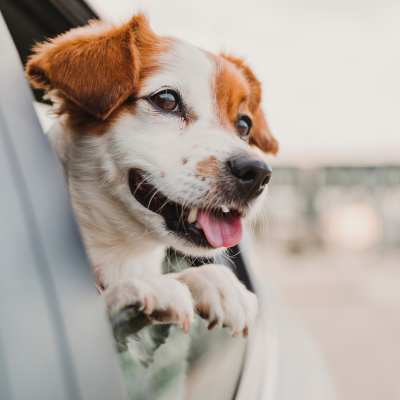
In the event of an evacuation, always bring your pets along. I usually tie Goji’s leash to Aela’s carrier handle during travels. This system ensures they're not only attached to me but also to each other, significantly reducing the chances of separation.
Staying Updated and Prepared
Keep yourself updated with the latest weather forecasts and emergency alerts. If a hurricane is imminent, it's crucial to follow instructions from local authorities and be prepared to evacuate if required. Plan your evacuation route in advance, taking into account accommodations and shelters that accept animals along the way. This is a key step in any hurricane preparedness plan for pets.
As responsible pet owners, it's our job to protect our pets from the risks posed by hurricanes. This involves updating your pet's information on platforms like PetHub.com, ensuring microchip details are current, and licensing pets where required. Preparing an emergency kit, creating a safe space at home, and not leaving pets behind during evacuation are key to their safety. Staying informed about weather updates and following advice from your local emergency management office are crucial parts of this process.
By including these steps in our hurricane preparedness plan, we enhance the chances of keeping our pets safe, secure, and with us throughout the storm. Let's prioritize our pet's well-being and ensure their safety not just during the hurricane season, but beyond.



